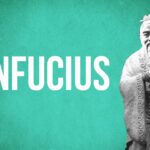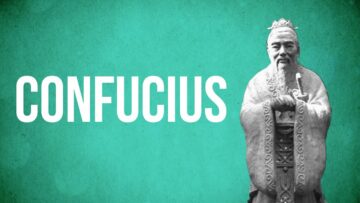

There was a time, not so long ago in human history, when practically no Westerners looked to the East for wisdom. But from our perspective today, this kind of philosophical seeking has been going on long enough to feel natural. When times get trying, you might turn to the Buddha, Lao Tzu, or even Confucius for wisdom as soon as you would to any other figure, no matter your culture of origin. And here in the 21st century, introductions to their thought lie closer than ever to hand: on The School of Life’s “Eastern philosophy” Youtube playlist, you’ll find primers on these influential sages and others besides, all playfully animated and narrated by Alain de Botton.
De Botton himself has written on many subjects, but has found some of his greatest success in one particular area: presenting the work of writers and thinkers from bygone eras in a manner helpful to modern-day audiences. That his best-known books include The Consolations of Philosophy and How Proust Can Change Your Life suggests a personal inclination toward the Western, but throughout subsequent projects his purview has widened.
With the School of Life’s Youtube channel he’s cast an especially wide cultural and intellectual net, which has pulled in not just the ideas of Plato, Kant, and Foucault but the principles of rock appreciation, kintsugi, and wu wei as well.
Who among us couldn’t stand to cultivate a little more appreciation for rocks, or indeed for the other seemingly mundane elements of the world we pass our days ignoring? And surely we could all use a bit of the worldview behind kintsugi, the art of repairing broken pottery in such a way as to brilliantly highlight the cracks rather than hide them, or wu wei, a kind of flexibility of being comparable to slight drunkenness.
If these concepts appeal to you, you can go slightly deeper with the School of Life’s introductions to such historical personages as Zen poet Matsuo Bash?, acknowledged as the master of haiku, and Sen no Riky?, who developed the Japanese “way of tea.” These would once have seemed unlikely subjects to interest people from the other side of the world; but as the popularity of these videos underscores, that era has passed. And as the School of Life expands, might it not find an even more robust audience of Easterners getting into Western philosophy?
Watch nine videos here.
Related Content:
“The Philosophy of “Flow”: A Brief Introduction to Taoism
In Basho’s Footsteps: Hiking the Narrow Road to the Deep North Three Centuries Later
Buddhism 101: A Short Introductory Lecture by Jorge Luis Borges
Wabi-Sabi: A Short Film on the Beauty of Traditional Japan
Based in Seoul, Colin Marshall writes and broadcasts on cities, language, and culture. His projects include the Substack newsletter Books on Cities, the book The Stateless City: a Walk through 21st-Century Los Angeles and the video series The City in Cinema. Follow him on Twitter at @colinmarshall or on Facebook.
Eastern Philosophy Explained: From the Buddha to Confucius and Haiku to the Tea Ceremony is a post from: Open Culture. Follow us on Facebook and Twitter, or get our Daily Email. And don't miss our big collections of Free Online Courses, Free Online Movies, Free eBooks, Free Audio Books, Free Foreign Language Lessons, and MOOCs.
from Open Culture https://ift.tt/3k1r6aG
via Ilumina





Comments
Post a Comment